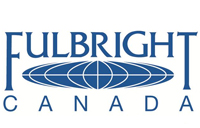 York University political science Professor Jacqueline Krikorian has been appointed a Fulbright Visiting Research Chair in Canada-US Relations at the Woodrow Wilson International Center for Scholars, and a visiting Fellow at the Institute for International Economic Law at Georgetown University Law Center. Both institutions are located in Washington, D.C.
York University political science Professor Jacqueline Krikorian has been appointed a Fulbright Visiting Research Chair in Canada-US Relations at the Woodrow Wilson International Center for Scholars, and a visiting Fellow at the Institute for International Economic Law at Georgetown University Law Center. Both institutions are located in Washington, D.C.
In January, Krikorian moved to Washington for six months where she will pursue her research in international trade law, and participate in special lectures and classes as part of the Fulbright role.
“The Fulbright allows me a wonderful opportunity to continue my research into international trade law, which is centered in Washington,” she said. “The Woodrow Wilson Center is the ideal location to undertake this research as it houses top scholars in a range of related areas and has a focus on not only trade issues but also Canada-US relations.”
This Fulbright honour is the second in Krikorian’s career. In 2001-2002, during her doctoral studies, she was a Fulbright Scholar at Georgetown University. Arising out of that experience is her book, International Trade Law and Domestic Public Policy: Canada, the United States and the WTO, published in 2012. It adopts the methodological approaches traditionally used to study the effect of domestic high courts in order to analyze the policy impact of decisions issued by the World Trade Organization (WTO) dispute settlement mechanism. Noted legal scholar Michael J. Trebilcock* has argued in his review that the “book is an impressive work of scholarship, and sets a new standard in the scope of analysis appropriate in analyzing the implications of WTO case law.”
The central theme of Krikorian’s book is that the WTO’s dispute settlement mechanism acts as a ‘constrained court’ and is limited in its ability to influence domestic arrangements Krikorian finds that three factors account for these findings: judicial deference, institutional arrangements, and strategic decision making by political elites in Ottawa and Washington. Her book offers an assessment of whether supranational courts are now setting the legislative agenda of sovereign nations. Krikorian brought the insights of law and politics scholarship to bear on a subject matter traditionally addressed by international relations scholars. By doing so, she underscored that the classic division between these two fields of study in the discipline of political science, though suitable in the postwar era, is outdated in the context of a globalized world.
In taking up the Fulbright, Krikorian will continue this focus of research by examining the nature and impact of NAFTA dispute settlement mechanisms in a project titled “Canada, the U.S. and Trade Remedy Disputes”.
The Fulbright is another chapter in Krikorian’s accomplished career. A lawyer by training, she is a member of the Bar in Ontario, but it was her love of research and academia lured her to the classroom. Now a professor at York University, Krikorian teaches in the Department of Political Science and in the Law & Society Program in the Faculty of Liberal Arts and Professional Studies. Her research specialties are government and public law, with a particular emphasis on Canada and US relations. She has been the recipient of funding from a number of institutions including the Social Sciences and Humanities Research Council of Canada, Fulbright Canada, and the Commonwealth awards program.
“York University has been tremendously supportive and worked with me so to ensure that I could come to Washington. I hope the outcome will be some papers and perhaps even a book on the subject,” she said. “I am so lucky to enjoy what I do and to be able make a difference as a teacher and researcher.”
In addition to her book, Krikorian has also published her research in a number of noted refereed journals including the Journal of International Economic Law, the University of Toronto Law Journal, and the Canadian Journal of Political Science.
By engaging the brightest minds in academic exchanges, the Canada-US Fulbright Program, which operates in over 150 countries worldwide, seeks to enhance mutual understanding between Canada and the US. Through its bilateral academic exchanges, outstanding students, scholars and professionals strengthen Canada-US relations by examining a wide range of subjects that are critical to the relationship between the two countries.
For more information, visit the Canada-US Fulbright Program website.
* Michael J. Trebilcock (2013). Review of ‘International Trade Law and Domestic Policy: Canada, the United States, and the WTO’ World Trade Review, 12, pp 616-619. doi:10.1017/S1474745613000116.


